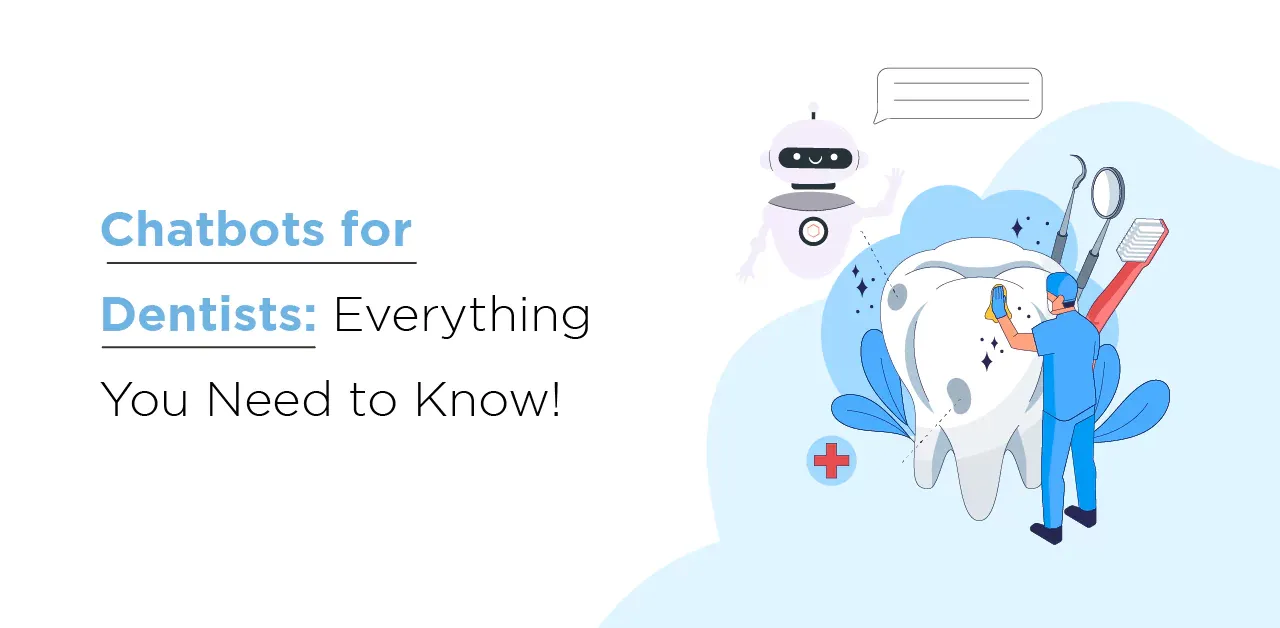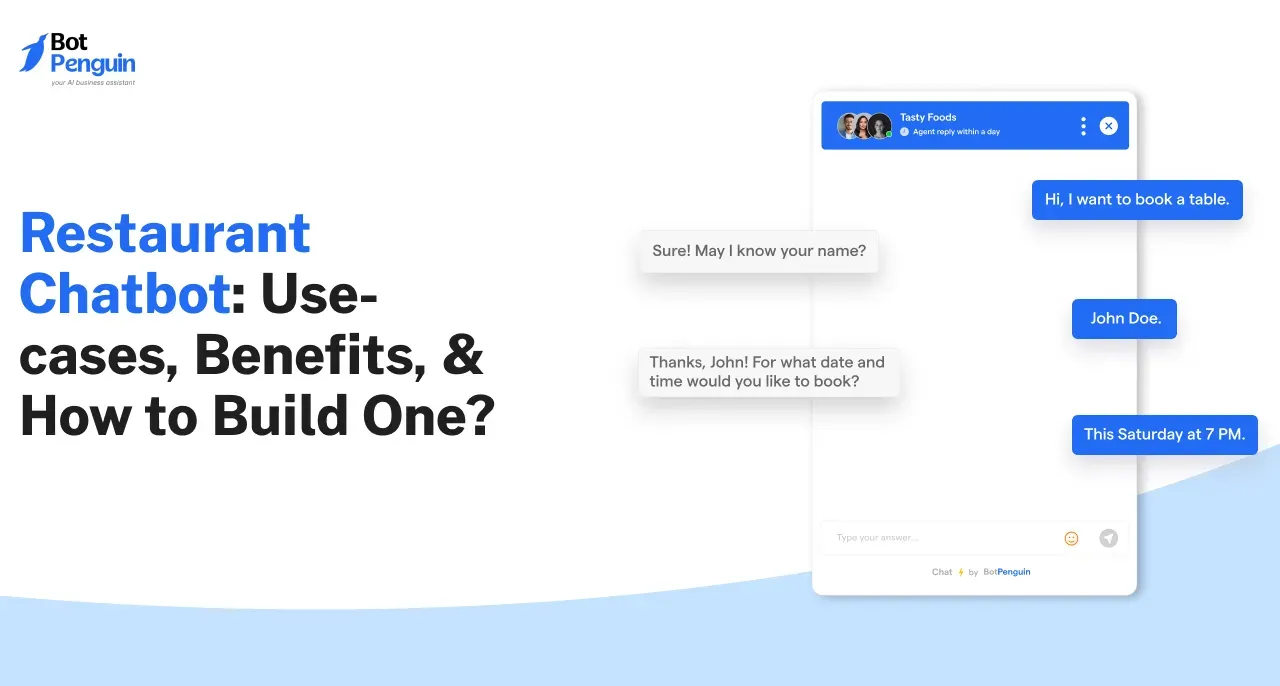Introduction
If you're a dentist, you should have a chatbot that does the majority of the work for you. You may concentrate on your practice while the chatbot handles marketing and commercial operations.
If we talk about chatbot users globally, 23% of customer service organizations use AI chatbots. At some time, 80% of individuals have engaged with a chatbot.
The number of chatbots operating on Facebook Messenger alone is above 300,000. The acceptance of chatbots is higher in online retail shops.
Do you want to know how a chatbot may help you with your dental work?
Then let us explore them below.
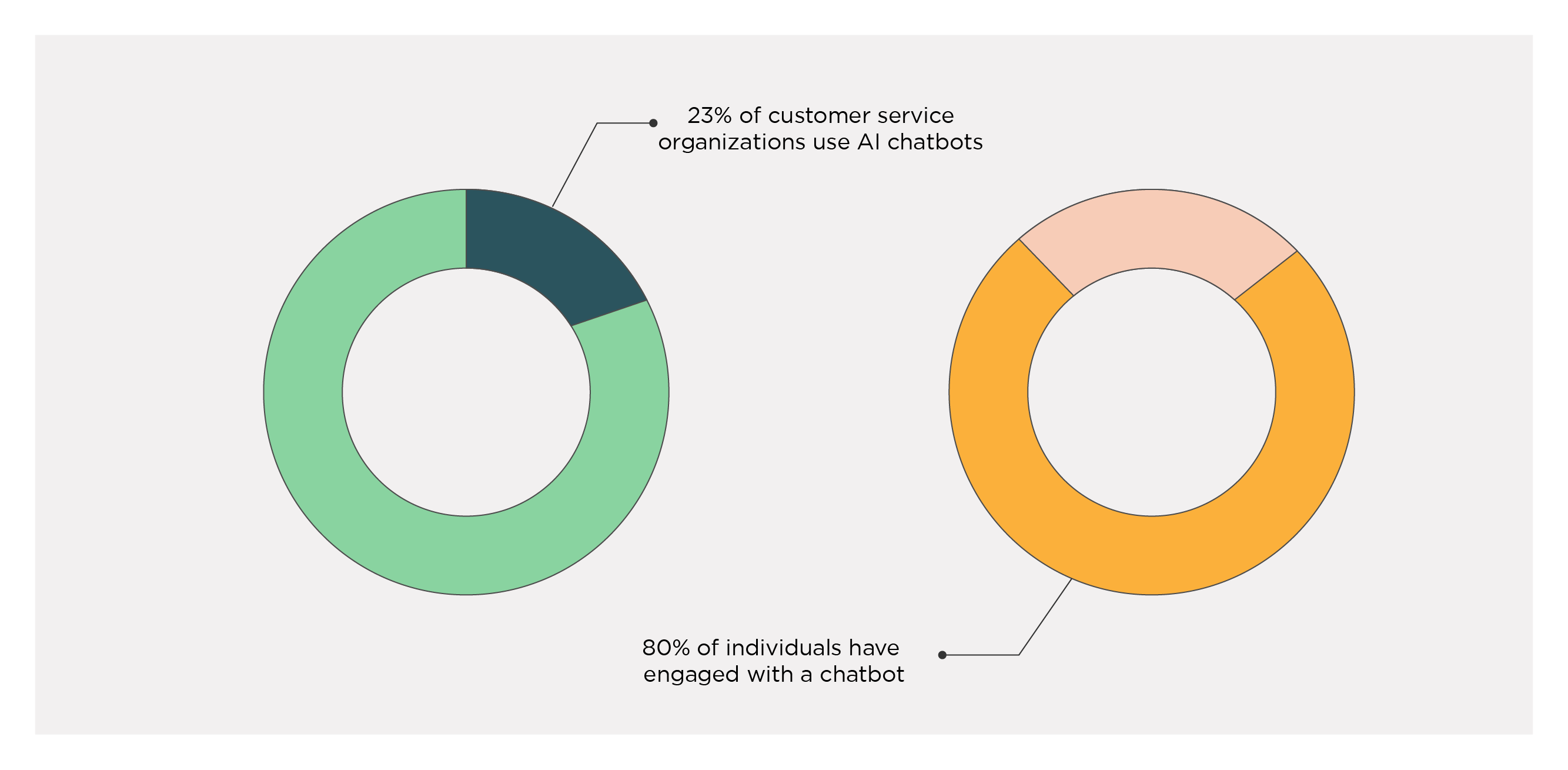
Chatbots for dentists: A brief insight
The lives of both patients and doctors are getting easier thanks to the usage of chatbots by leading healthcare companies like Pfizer and the UK NHS.
Chatbots are now an essential part of the customer care for dentistry clinics, alleviating actual agents of the workload. Like, pressure of completing routine chores and simple inquiries so they can focus on more difficult conversations. In the event that the automated assistant is unable to react, the patient may then be referred to a member of your clinic's staff.
Dental businesses may save time and money by streamlining customer service and automating routine tasks.
When the phone service is busy, using a chatbot boosts productivity while reducing patient loss. You may speak with many patients at once with chatbots, and they'll make sure you book more appointments so you can grow your practice.
In comparison, if a patient visits the website to find out more about dental implants, a bot makes it simple for them to view factual info about your services and verify price lists. By automating repetitive operations, you give your customers more time.
How do they perform?
There are at least two main architectures that affect how chatbot functions. Understanding user requests are handled by natural language processing, and knowledge management aids in responding.
With machine learning and a knowledge template, your chatbot can grasp users' intentions and better respond to them with each encounter.
By assuming the user's conversation goal would be based on the information it has, a chatbot will make an effort to give that user appropriate information.
It's crucial to note that chatbot market penetration is now restricted owing to the existing capabilities of AI, but that will progressively change as AI develops to its full potential.
Chatbots work best when assigned jobs that a new employee would do. Your dental chatbot can be compared to a motivated intern.
They are a new approach to automating routine processes in your clinic, including providing details on procedures, and costs, booking appointments, and sending appointment reminders.
As a result, you can free up your personnel to work on more crucial things, enhancing both productivity and employee happiness.
Nobody likes having to call each patient on a list of patients every day. Additionally, inventory, invoicing, and chatbots may handle insurance claim handling.
Why do dental clinics and dentists use chatbots?
1. Appointments
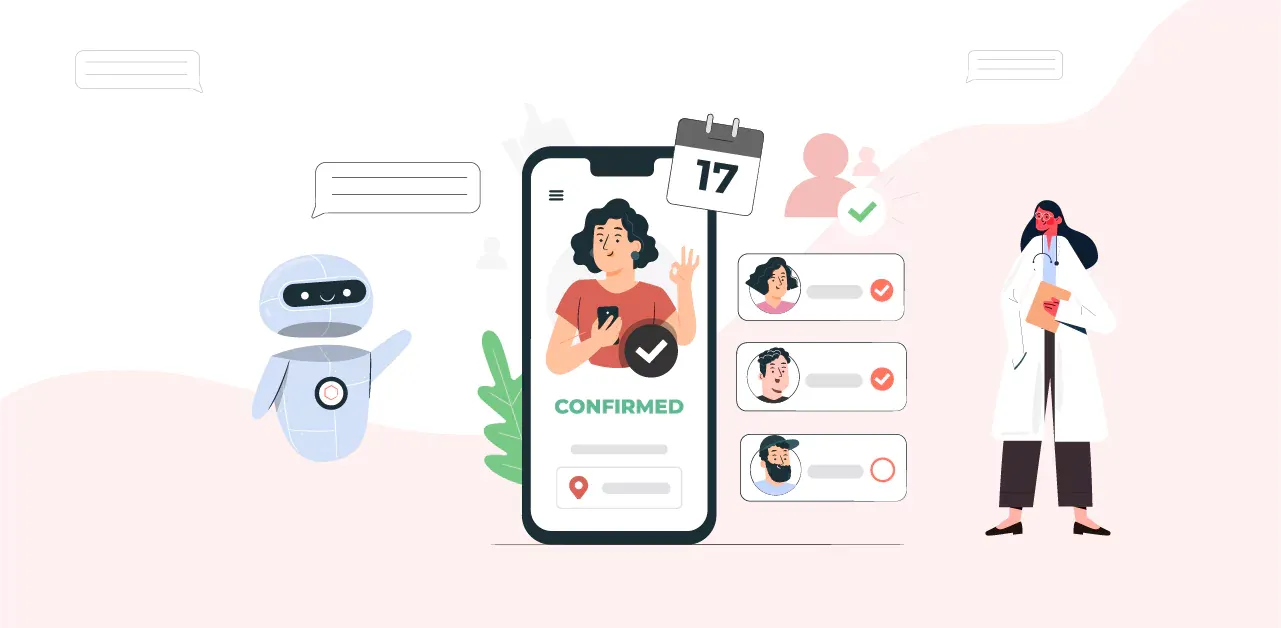
Let's start with one of chatbots' most popular yet critical applications across all sectors. Direct appointment-taking is possible through the chatbot. The chatbot assists with scheduling. The chatbot allows you to arrange your allotted period.
If you currently use a software, you don't need to add it to the chatbot. The chatbot and the desired software can readily interface and may utilize that information to reserve the slots. That information may be used directly to program the chatbot to use it.
Many patients at dental offices just come in for routine checkups and may make an appointment using the chatbot.
2. Treatment details
Depending on their condition, patients can choose from a variety of dental implants. Consulting takes a lot of time. The temporal barrier can be broken down here. A chatbot may speak with the patient and learn more about their condition.
A chatbot can recommend the best course of action once they have provided the necessary information. They will also be shown the ideal time for therapy.
The patient may also send a message to obtain all the advantages of the treatments and any negative effects if they wish to learn more about the procedure.
3. Nurture the leads
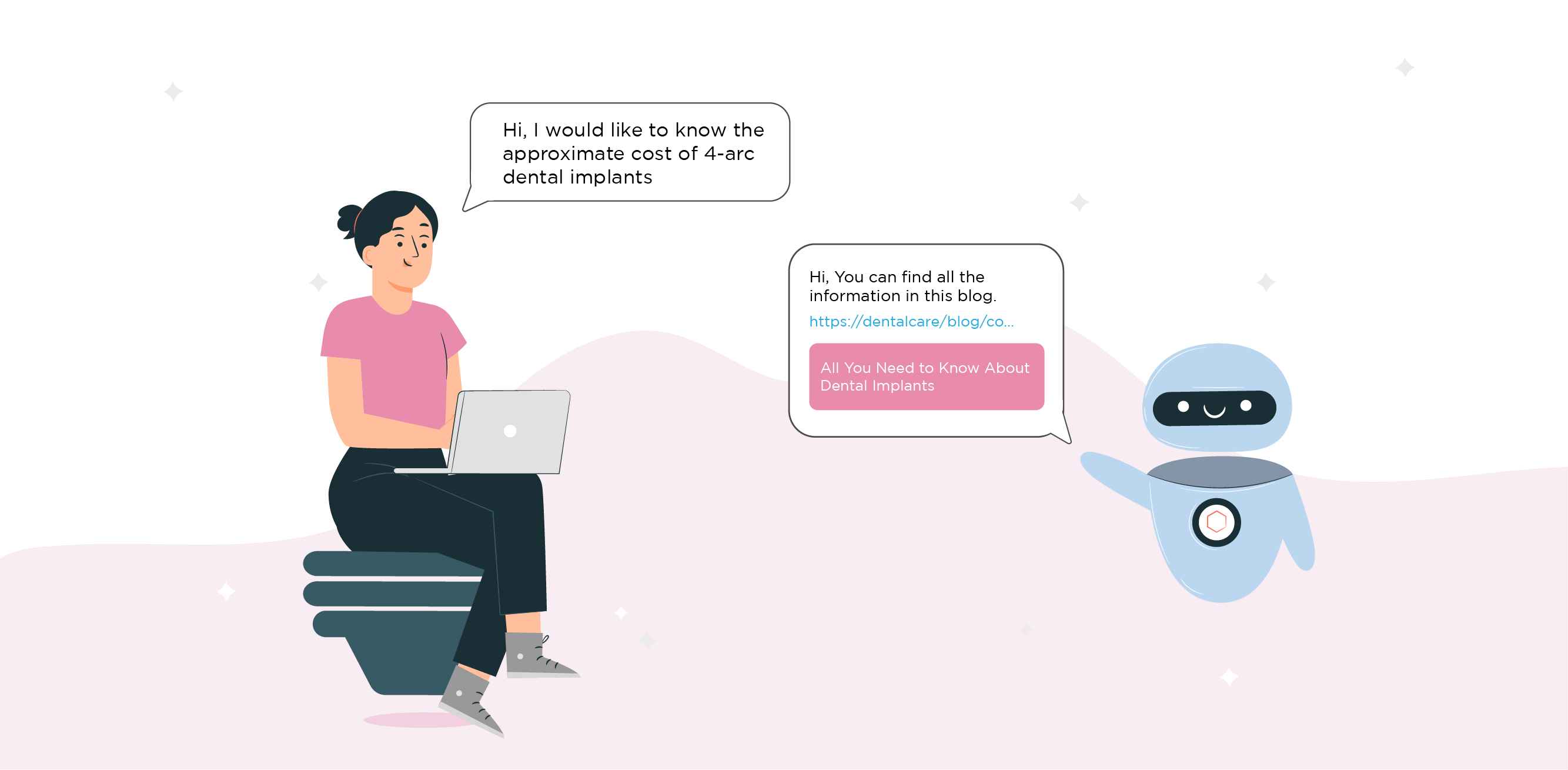
To succeed, you must persuade your clients—in this case, patients. Therefore, a chatbot can assist you with your marketing efforts. If you have the appropriate information, nurturing leads will be simple.
The dentistry profession uses blogs extensively to provide information. All of this information may be provided to them directly through the chatbot.
For instance, if a patient wants to know the approximate cost of 4-arc dental implants, they can query the chatbot with ease.
The chatbot will either respond with the necessary information and pricing, or it may even send them a link to the blog post you made.
4. Less human work and more automation
You undoubtedly employ someone to manage the appointments in addition to various other responsibilities, right?
By using a chatbot to provide automation, you can reduce the amount of work they have to do.
A chatbot is incredibly useful for automating a variety of activities.
They may concentrate on other, more crucial tasks as they are no longer required to address the support inquiry. The majority of exchanges will be handled by the chatbot, which will also address any patient issues.
5. Cost-effective

Saving money is essential as well. A chatbot can speed up, simplify, and increase the productivity of many of your tasks.
It's comparable to employing someone to manage all of these things. The main differences are the chatbot's price and the fact that a computer doesn't make mistakes.
Therefore, using a chatbot will provide you with this amazing benefit.
Suggested Reading:
BotPenguin can be nice upgrade to your Dental Clinic
FAQs
1. Can chatbots assist dentists in generating leads?
Yes! A chatbot may accomplish much more than mere aid in lead generation. They may aid in raising a dental practice's conversion rate. They may also contribute to enhancing patients' overall experiences.
2. What is a chatbot that evaluates dental insurance plans?
Dental companies evaluate the effectiveness of their dental plans using a chatbot that help them to evaluates insurance plans.
Dentist chatbot will question customers about their experience with their dental coverage. A report on the evaluation of the dental plan will be produced using these data.
Conclusion
Chatbots are a quick and simple way to tell customers about the various dental procedures your clinic provides.
For instance, if the patient is interested in teeth whitening, it can give them a general overview of the various teeth whitening procedures you provide.
A patient will find it simpler to obtain insightful information regarding the operations they are interested in.
Giving them the most pertinent answers to their inquiries can encourage them to become clients for your clinic.
BotPenguin is an excellent tool for creating a hospital appointment scheduling chatbot.
Try it now!
